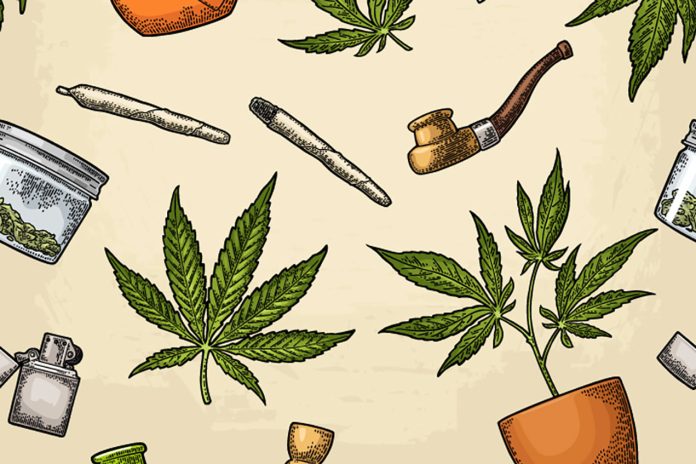The Director-General of the National Agency for Food and Drug Administration and Control, Prof. Mojisola Adeyeye, says cannabis use is seven times higher among men than women.
Adeyeye said the use of cannabis is 18.8 per cent among men versus 2.6 per cent of women, while the gender gap in the non-medical use of pharmaceutical opioids (such as tramadol) was less marked.
According to her, an estimated 10.8 per cent of the population, or 10.6 million people used cannabis in the past year with the average age of initiation of cannabis use among the general population put at 19 years.
This was disclosed in a statement made available by the agency’s Resident Media Consultant, Sayo Akintola.
The statement noted that Prof Adeyeye said this in Lagos at the launch and dissemination of the 2022 Annual Report of the International Narcotics Control Board and Precursors Report 2022.
She said, “Cannabis use was seven times higher among men (18.8 per cent among men vs. 2.6 per cent of women), while the gender gap in the non-medical use of pharmaceutical opioids (such as tramadol) was less marked’’, she said.
She, however, said that Nigeria will not support the trend of legalisation of cannabis for non-medical use as Nigeria lacks the financial capacity to fight cultivation, production, and illegal use of the substance.
The non-medical use of Cannabis, according to her, contravenes the United Nations Single Convention of 1961, which classifies cannabis as a highly addictive substance.
She commended the United Nations Office on Drug and Crime UNODC for the assistance and support to the country in the fight against illicit drug production, trafficking, and use, and in curbing related organised crime.
‘’We also appreciate INCB for the support to NAFDAC towards enhanced regulatory control of narcotics and psychotropic substances’’.
Adeyeye described narcotics and psychotropic substances as indispensable for the relief of pain and suffering and that they are controlled within the framework of the three international conventions as they possess abuse liability and produce dependence in users.
‘’They are classified not on chemical nature but on the potential for abuse and the need for medical use of the substance’’, she said, adding that one of the control objectives is to ensure availability solely for medical and scientific uses while minimizing the possibility of diversion to illicit channels and abuse,” she said.
According to her, the policy thrust of the Agency is to ensure availability, access, and rational use while preventing illicit use and abuse. The international drug control conventions, she added, are thus interpreted to mean improved access to controlled medicines to enable countries to meet their drug needs.
In other to ensure adequate availability of controlled medicines, the NAFDAC boss disclosed that the Agency in conjunction with the Federal Ministry of Health carried out two quantifications of narcotics and estimation of psychotropic substances and precursors in 2017 and 2019.
She said the results of these surveys provide the evidenced-based estimation of our national annual requirements for these substances and enable the country to develop measures to achieve that delicate balance between access and control.
‘’According to the 2018 National Drug Use Survey, the prevalence of any drug use was 14.4 per cent or 14.3 million people between the age of 15 and 64 years’’, she said, noting that this is comparatively high compared with the 2016 global annual prevalence of 5.6 per cent among the adult population.
Prof Adeyeye pointed out that the challenges arising from drug supply and consumption are not restricted to people who use drugs but have wider health, social and economic consequences on the family, community, and country.
The agency, however, said it is collaborating with the National Drug Law Enforcement Agency, and the Nigeria Customs Service amongst other stakeholders in the health sector, to fight against illicit drug production, trafficking, and use, and in curbing related organised crime.
Speaking in the same vein, the Executive Chairman of NDLEA, Brigadier General, Buba Marwa (retd.) decried what he described as an upsurge in the abuse of cannabis amongst Nigerian youths with its attendant negative effects on society.
General Marwa who was represented by Mrs. Victoria Ekase, noted that NDLEA on its part collaborates with NAFDAC in ensuring that the measures put in place to prevent the diversion of such medicines and substances to illicit use are adhered to.
The Comptroller General of the Nigeria Customs Service, Col. Hameed Ibrahim Alli (Rtd.), who was represented at the event by Ag. Assistant Comptroller General, ACG, A.N Dappa, also pledged the loyalty and support of the customs service in the task of ridding the nation of illicit drugs.


